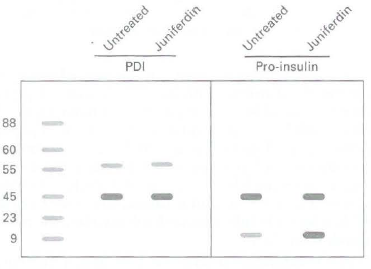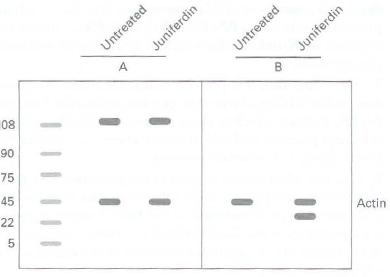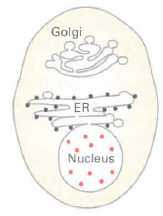Recently, researchers discovered that treating mammalian cells with juniferdin, a plant-derived compound, affects protein secretion, and have
Question:

a. Given that approximately the same amount of protein was loaded in each lane, as evidenced by the actin signals, how do you explain the fact that the PDI levels also appear about the same, while most of the pro-insulin remains accumulated in the juniferdin-treated cells?
b. To confirm your results, protein lysates of juniferdintreated and untreated cells were separated by SDS-PAGE and blotted to membranes and then probed with antibodies against lre1 and Hac1.

Label each blot with the antibody that was used for the analysis. How do you explain the increase in the intensity of the signal seen in the juniferdin-treated cells in blot B?
c. An immunocytochemistry and fluorescence microscopy analysis was undertaken with the antibody used in blot Band a secondary antibody labeled with rhodamine (red). Since juniferdinspecifically affects PDI, a resident rough ER (RER) protein, how do you explain the localization of the signal in the nucleus?

Step by Step Answer:

Molecular Cell Biology
ISBN: 978-1429234139
7th edition
Authors: Harvey Lodish, Arnold Berk, Chris A. Kaiser, Monty Krieger, Anthony Bretscher, Hidde Ploegh, Angelika Amon, Matthew P. Scott





